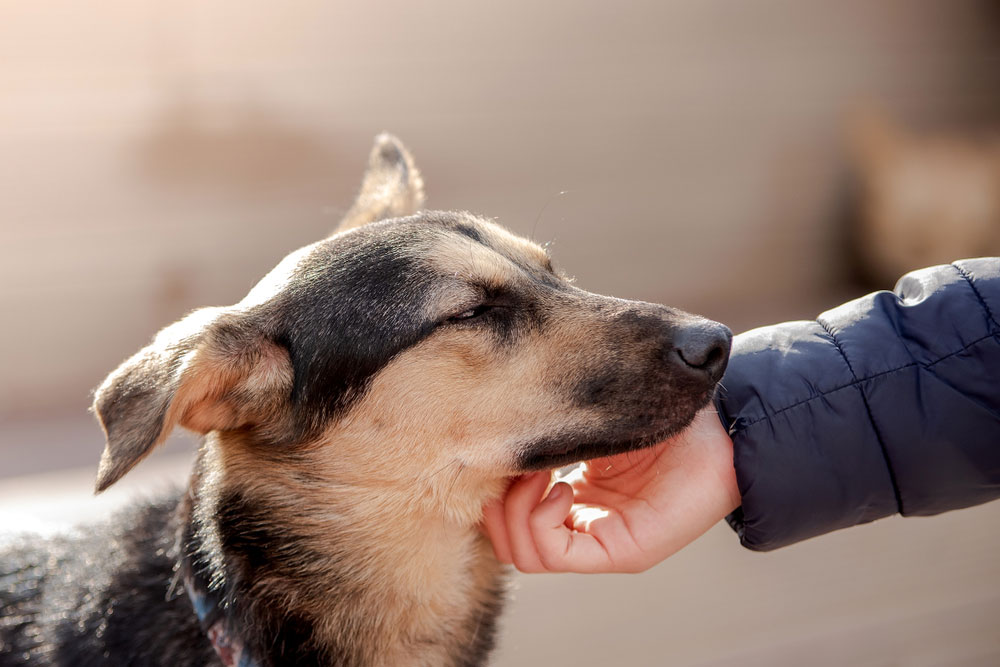German Shepherds have captivated the hearts of dog lovers worldwide for decades. They are known for their striking appearance, unwavering loyalty, and remarkable intelligence. Understanding German Shepherd temperament is essential to comprehend their behavior and meet their needs effectively.
Table of Contents
German Shepherd Temperament
German Shepherds have gained a reputation for their exceptional intellect, unwavering devotion, and remarkable adaptability. They are one of the most popular dog breeds worldwide, renowned for their exceptional working abilities and strong bond with their owners.
History of German Shepherds
German Shepherds originated in Germany in the late 19th century, where they were initially bred as herding dogs. Captain Max von Stephanitz is credited with developing the breed and setting breed standards that are still followed today.
German Shepherds gained popularity for their exceptional working abilities, including herding, guarding, police work, search and rescue, and serving as guide dogs for the visually impaired.
Physical Characteristics
German Shepherds are medium to large-sized dogs with a well-muscled and athletic build. They have a distinctively noble and alert expression, with a strong, proportionate head and dark, intelligent eyes. Their double coat consists of a dense, weather-resistant outer coat and a thick undercoat.
German Shepherds come in various color patterns, with the most common being black and tan, although they can also be solid black, sable, or all white.
Personality Traits
German Shepherds have established themselves as renowned for their remarkable cognitive abilities, steadfast allegiance, and innate inclination towards safeguarding. They are highly trainable and eager to please their owners, making them excellent working dogs and family companions.
German Shepherds are inherently loyal and form strong bonds with their families, often displaying a natural instinct to protect and guard their loved ones. They are typically confident, courageous, and exhibit a strong work ethic.

Training and Socialization
To ensure optimal growth and development, it is imperative to provide German Shepherds with adequate training and socialization opportunities. Their intelligence and eagerness to learn make them highly trainable, but they require consistent, positive reinforcement methods.
Introducing German Shepherds to diverse individuals, animals, and surroundings during their formative stages is of utmost importance, as it plays a pivotal role in shaping their character and fostering a sense of assurance and versatility.
Training should focus on obedience, basic commands, and advanced skills based on their intended roles, such as search and rescue, police work, or therapy.
German Shepherds and Their Loyalty
German Shepherds are widely recognized for their exceptional loyalty, which is a defining characteristic of German Shepherd temperament. Their unwavering devotion to their owners and families is truly remarkable. German Shepherds form deep bonds with their human companions and are fiercely protective of them.
They have a strong instinct to guard and defend, making them highly reliable and trustworthy. Once a German Shepherd establishes a bond, their loyalty knows no bounds.
They are always ready to stand by their loved ones, offering comfort, companionship, and a strong sense of security. This loyalty extends beyond their immediate family, as German Shepherds often exhibit loyalty towards their broader social circle.
Whether it’s through their attentive nature or their unwavering commitment, German Shepherds exemplify loyalty in its purest form, earning them a special place in the hearts of their owners.
The Protective Nature of German Shepherds
German Shepherds are renowned for their innate protective nature, which is ingrained in German Shepherd temperament. These remarkable dogs have a strong instinct to guard and protect their loved ones.
They possess a heightened sense of awareness and vigilance, making them excellent watchdogs and guardians. German Shepherds are naturally alert and perceptive, always assessing their surroundings and responding to potential threats.
They are quick to react and have a fearless demeanor when it comes to defending their family or territory. Their protective nature is not limited to physical protection; they also provide emotional support and a sense of security to their owners.
With an unwavering sense of duty, German Shepherds wholeheartedly embrace their responsibilities as guardians, exhibiting a willingness to face perilous situations in order to safeguard the well-being of their cherished ones.
This protective instinct, combined with their loyalty and intelligence, makes German Shepherds highly valued as dependable and reliable protectors in both personal and professional settings.
German Shepherds and Their Intelligence
German Shepherds are widely recognized for their exceptional intelligence, which is a defining trait of the breed. They rank among the most intelligent dog breeds in the world. German Shepherds possess a keen intellect and a remarkable ability to learn and problem-solve.
They are quick learners and have a strong desire to please their owners, making them highly trainable and responsive to commands. German Shepherd Temperament and their intelligence allows them to excel in various tasks and roles, including obedience competitions, search and rescue operations, and police or military work.
German Shepherds have a remarkable capacity for understanding and interpreting human cues, which enables effective communication and collaboration with their handlers. Their intelligence is not limited to obedience and task-oriented skills; they also exhibit great problem-solving abilities and can quickly adapt to new situations.
This intelligence, combined with their loyalty and versatility, makes German Shepherds highly valued as working dogs and cherished companions.
Health Concerns
While German Shepherds are generally healthy dogs, they are prone to certain health issues that potential owners should be aware of.
Some common health concerns in German Shepherds include hip and elbow dysplasia, degenerative myelopathy, bloat, allergies, and certain genetic conditions.
Diet and Nutrition
A well-balanced and appropriate diet is essential to support the energetic and active nature of German Shepherds and promote their overall German Shepherd temperament. Providing a nutritious diet is crucial for the health and longevity of German Shepherds.
High-quality dog food that is appropriate for german shepherd temperament, age, size, and activity level should be chosen. German Shepherds may have specific dietary requirements based on their individual needs or any existing health conditions.
It’s important to consult with a veterinarian to determine the most suitable diet plan for your German Shepherd.
Grooming and Maintenance
The grooming routine of German Shepherds not only helps keep their coat in top condition but also allows for important bonding time with their owners, which strengthens the unique German Shepherd temperament.
When it comes to grooming, German Shepherds require regular maintenance to keep their coat healthy and shiny, reflecting their overall German Shepherd temperament. German Shepherds have a moderate grooming requirement.
Their dense double coat needs regular brushing to prevent matting and remove loose hair. They shed moderately throughout the year and have heavier shedding periods during seasonal changes.
Other grooming needs include regular dental care, nail trimming, and ear cleaning to maintain good hygiene and overall health.
Exercise and Activity Needs
The active and energetic German Shepherd temperament makes them highly enthusiastic about engaging in various activities, ensuring they are happy and fulfilled with regular exercise. German Shepherds are an active and energetic breed that requires regular exercise to maintain their physical and mental well-being.
Daily exercise should include long walks, vigorous play sessions, and opportunities for mental stimulation, such as puzzle toys or obedience training. They thrive in homes with large, securely fenced yards where they can safely roam and explore.
German Shepherds as Family Pets
The German Shepherd temperament, combined with their natural loyalty and affection, creates a strong bond between these remarkable dogs and their families, making them cherished companions for life.
When given appropriate training and socialization, German Shepherds possess the remarkable ability to become exceptional companions for families, enriching their lives with joy and warmth. They are known for their loyalty, protective instincts, and affectionate nature towards their families.
Their size, energy level, and need for mental stimulation mean they are best suited for active families who can provide them with plenty of exercise and attention. German Shepherds thrive when they are included in family activities and given a sense of purpose.
German Shepherds and Children
German Shepherds can form strong bonds with children and can be excellent companions. However, due to their large size and sometimes boisterous nature, supervision is crucial when they interact with young children.
Early socialization and training are essential to ensure they understand appropriate behavior around children and to prevent any unintentional harm.
German Shepherds and Their Playfulness
The playful nature of German Shepherds brings an element of joy and liveliness to their overall German Shepherd temperament, making them beloved companions for playtime and creating lasting memories with their families.
German Shepherds, despite their reputation for being serious and focused working dogs, also possess a delightful sense of playfulness. Their playful nature adds a charming and endearing aspect to German Shepherd temperament.
German Shepherds thoroughly enjoy engaging in playtime with their owners or other dogs, and it serves as an essential outlet for their energy and mental stimulation. They are often seen bounding with enthusiasm, chasing after balls or engaging in interactive games.
Their intelligence and agility make them adept at learning new games and tricks, and they are always eager to participate in activities that challenge them both physically and mentally.
This playful side not only strengthens the bond between German Shepherds and their owners but also provides an opportunity for them to have fun and enjoy themselves. It’s important to incorporate regular play sessions into their routine to keep them happy, active, and content.
German Shepherds and Other Pets
The German Shepherd temperament, when combined with early socialization and positive experiences, allows them to develop the necessary skills to peacefully coexist with other pets, fostering a harmonious and balanced household.
With proper socialization, German Shepherds can coexist peacefully with other pets.
Their strong prey drive and protective instincts should be taken into consideration. Introducing them to other animals should be done gradually and under controlled circumstances.
Early socialization and positive experiences with other animals can increase the chances of successful cohabitation.
German Shepherds as Working Dogs
German Shepherds are highly regarded as working dogs due to their intelligence, versatility, and trainability. They excel in various roles, including police work, search and rescue, tracking, herding, and serving as service dogs. Their strong work ethic, endurance, and problem-solving skills make them highly sought after in many professional fields.
Common Behavioral Issues
The German Shepherd temperament, with its intelligence and eagerness to please, allows for effective training and behavior management strategies that can address and mitigate potential behavioral issues in a proactive and constructive manner.
Like any other dog breed, German Shepherds can develop behavioral issues if not properly trained and socialized. Some common behavioral issues in German Shepherds include aggression, separation anxiety, excessive barking, digging, and chewing.
Early and consistent training, positive reinforcement, and providing outlets for their energy and mental stimulation are crucial to prevent or address these issues.
Training Considerations for German Shepherds
When it comes to training German Shepherds, several considerations should be kept in mind due to unique German Shepherd temperament and characteristics.
Firstly, early socialization is crucial to ensure they become well-rounded and confident dogs. Introducing them to various people, animals, and environments at a young age helps prevent fearfulness or aggression later in life.
German Shepherds thrive on mental stimulation, so incorporating obedience training, puzzle toys, and interactive games into their routine is highly beneficial.
Consistency and positive reinforcement methods work best with this breed, as they respond well to praise, treats, and rewards. It’s important to establish clear boundaries and rules from the beginning to avoid any confusion.
German Shepherds are eager to please, so using positive reinforcement techniques to encourage desired behaviors is highly effective. Regular exercise is also essential, as it helps channel their energy and prevents behavioral issues.
Training sessions should be engaging and varied to keep their interest levels high. With patience, consistency, and a positive approach, German Shepherds can become well-behaved, obedient, and happy companions.
German Shepherd Rescue and Adoption
Rescue organizations and shelters work diligently to match German Shepherds with suitable families, taking into account their unique German Shepherd temperament traits and ensuring a successful and harmonious adoption experience.
German Shepherd rescue organizations and shelters are dedicated to finding loving homes for German Shepherds in need. Adoption can be a fulfilling way to add a German Shepherd to your family while giving a deserving dog a second chance.
It’s important to research and choose a reputable rescue organization or shelter, ensuring they conduct proper assessments and provide necessary medical care before placing dogs in adoptive homes.
Famous German Shepherds
German Shepherds have been featured in movies, television shows, and books, often showcasing their intelligence, loyalty, and heroic qualities. Some famous German Shepherds include Rin Tin Tin, Strongheart, Bullet (the dog from the TV series “The Roy Rogers Show”), and K-9 Max from the movie “Max.” These notable dogs have contributed to the breed’s popularity and have become icons of loyalty and bravery.
Are German Shepherds good with children?
Yes, German Shepherds can be good with children when properly trained and socialized. However, supervision is crucial to ensure safe interactions.
How much exercise do German Shepherds need?
German Shepherds are an active breed and require at least 1-2 hours of exercise daily to fulfill their physical and mental needs.
Do German Shepherds shed a lot?
Yes, German Shepherds have a moderate shedding level. Regular brushing can help manage their shedding and keep their coat healthy.
Are German Shepherds aggressive?
German Shepherds can exhibit aggressive behavior if not properly trained, socialized, or if they have underlying health or behavioral issues. Early training and socialization are essential to prevent aggression.
Can German Shepherds be left alone?
German Shepherds are social dogs and thrive on human companionship. Leaving them alone for extended periods can lead to separation anxiety and behavioral problems. They require regular exercise, mental stimulation, and interaction with their owners.
How long do German Shepherds live?
On average, German Shepherds have a lifespan of 9-13 years. Providing them with proper care, nutrition, exercise, and regular veterinary check-ups can contribute to their overall health and longevity.
Are German Shepherds easy to train?
Yes, German Shepherds are highly trainable due to their intelligence, willingness to please, and strong work ethic. Consistent, positive reinforcement training methods work best with this breed.
Do German Shepherds make good guard dogs?
Yes, German Shepherds have natural protective instincts and make excellent guard dogs. Their loyalty, intelligence, and courage make them highly effective at protecting their families and property.
Are German Shepherds good for first-time dog owners?
While German Shepherds can be suitable for first-time dog owners, they require commitment, proper training, and socialization. Potential owners should research the breed, consider their energy levels, exercise requirements, and be prepared to invest time and effort into their training and well-being.
Do German Shepherds get along with other dogs?
German Shepherds can get along with other dogs with proper socialization and introductions. Early socialization and positive experiences are key to fostering good relationships between German Shepherds and other dogs.
Conclusion
German Shepherd temperament is truly remarkable and combines intelligence, loyalty, and versatility. Whether as working dogs, family pets, or companions, they bring immense joy and companionship to their owners.
Understanding their history, physical characteristics, personality traits, training needs, health concerns, and the responsibilities that come with owning a German Shepherd is vital for providing them with a happy and fulfilling life.
If you’re considering adding a German Shepherd to your family, ensure you can meet their needs and provide the love and care they deserve.

I’m David, an expert contributor and writer, with two furry friends of my own, I know the challenges of raising and caring for dogs. From training to nutrition and health, my goal is to provide valuable insights and advice to help create strong bonds and happy, healthy lives. Find me in Twitter.




